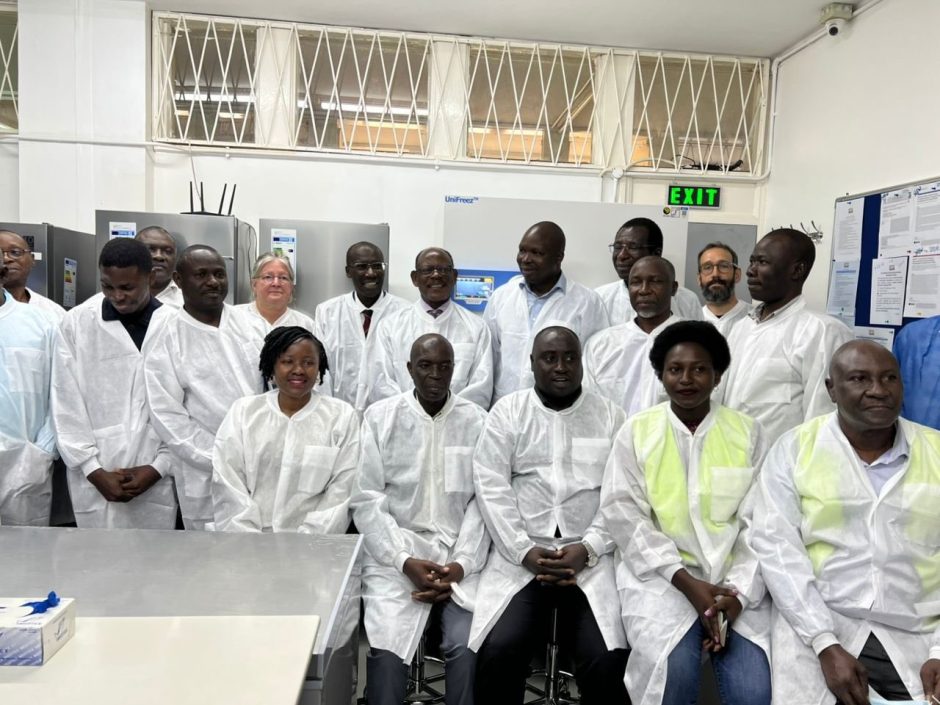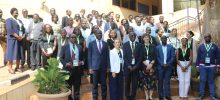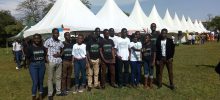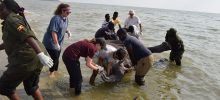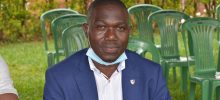The newly refurbished CoVAB-based Research Centre for Tropical Diseases and Vector Control (RTC) Commissioned
On Friday, 1st August 2025, Prof. Barnabas Nawangwe, Vice Chancellor of Makerere University, officially inaugurated the newly upgraded Research Centre for Tropical Diseases and Vector Control (RTC Lab) at the College of Veterinary Medicine, Animal Resources and Biosecurity (CoVAB). The event brought together a wide range of stakeholders, including representatives from the Ministry of Agriculture, Animal Industry and Fisheries (MAAIF), the funding partner GLAVmed, the Uganda Veterinary Association (UVA), and the Uganda Animal Health Laboratory Network, staff and students of the college.
A once-outdated research lab in Uganda, as recently as 2015, has undergone a remarkable transformation, emerging as a multi-unit scientific powerhouse that now plays a pivotal role in advancing national health priorities and training students across diverse disciplines. Strategic partnerships fueled this revitalization, the most recent being the MoTAR project, Monitoring of Ticks and Acaricide Resistance in Uganda, implemented by CoVAB. With support from the Global Alliance for Livestock Veterinary Medicines (GALVmed), the MoTAR project will establish a total network of nine technically equipped laboratories across the country. The labs, three of which have been commissioned, including RTC, Gulu, and Kumi labs, will be central to diagnosing tick-borne diseases, tracking acaricide resistance, and generating data to inform national policy and improve livestock productivity.
“If I could launch laboratories every single day and do nothing else, I would,” declared Prof. Barnabas Nawangwe, Vice Chancellor, during the unveiling ceremony. “Our vision is to transform into a more research-intensive, research-led university that journey begins here.”
He emphasized the transformative power of innovation, urging the community to view research not just as an academic pursuit but as a driver of development and job creation. He commended CoVAB for its remarkable research output, attributing it to the university’s ranking.
Prof. Nawangwe encouraged researchers to embrace a mindset of creativity and production. He noted the increasing volume of patent, trademark, and copyright applications processed by the university’s intellectual property office, which, he said, was evidence that scholars were now committed to turning ideas into impactful solutions.
The Vice Chancellor applauded the critical work taking place in the RTC lab, especially in addressing livestock mortality amid growing population pressures. He challenged vaccine researchers to ensure their innovations directly respond to the urgent need to safeguard the livestock sector, which is a cornerstone of national food security and economic stability.
While addressing the issue of a lack of jobs in the country, he said the responsibility of job creation lies on the shoulders of the researchers. ‘It is we who must create jobs through the students we train, and the innovations we make. We want every Makerere student to go out with a company in their hands to create jobs, he said, while congratulating the RTC team for the great work done.

The Vice Chancellor, Prof. Barnabas Nawangwe, flanked the Principal, other college staff, officials from MAAIF, Uganda Veterinary Association, VISUKA, officially opening the laboratory.
The RTC lab’s strategic rise from humble beginnings.
According to Dr. Patrick Vudriko, Head of the Facility and Principal Investigator of the MoTAR project, the transformation began in 2011, when the lab faced challenges of outdated equipment and limited operational capacity. Fueled by a vision for change, he said, a committed team spearheaded efforts to restore and reinvent the research center. A turning point came in 2016, when Dr. Vudriko received advanced training in Japan, which, coupled with the arrival of modern equipment, marked the beginning of a structured reorganization. By 2022, the lab had evolved into a robust multi-unit research complex featuring four specialized laboratories, namely genomics, serology, pharmaceutical research and development, and a general research unit, each aligned with CoVAB’s academic departments and Uganda’s broader scientific agenda.
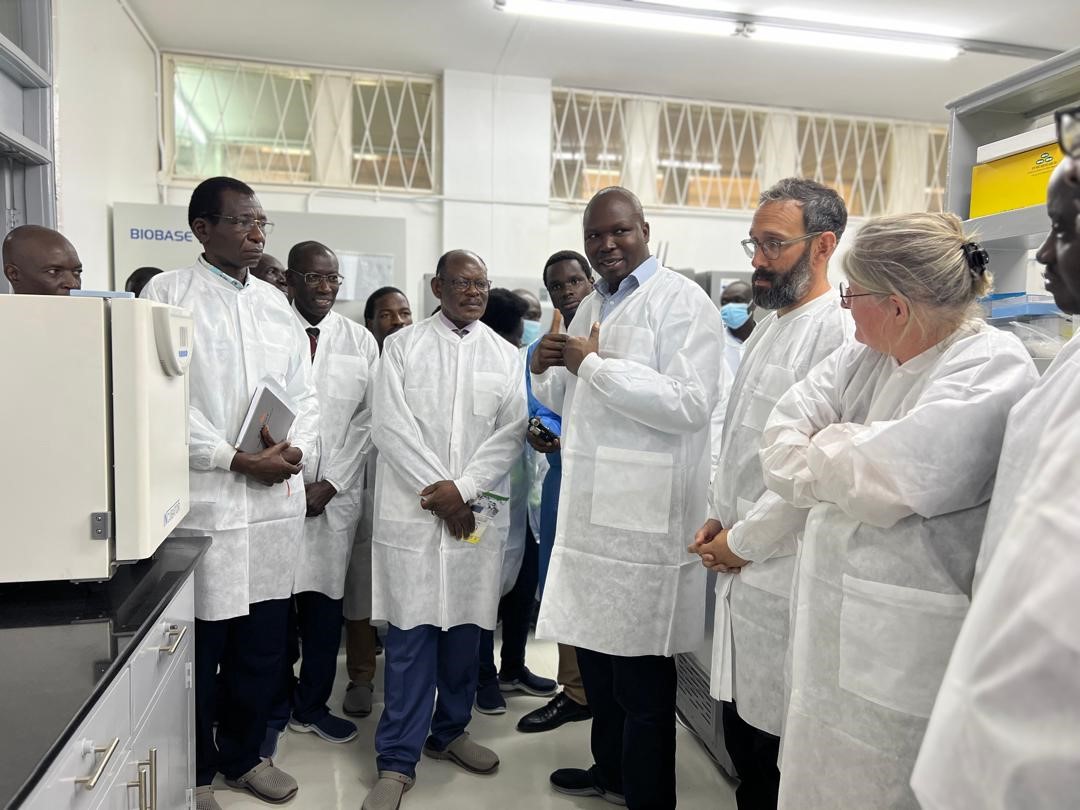
Dr. Patrick Vudriko explains to the VC the progress made in the RTC Lab over time and the potential in terms of research output
The upgraded RTC Lab has become a magnet for budding scientists across a wide spectrum of disciplines and institutions. While rooted within CoVAB, the facility draws active participation from other colleges at Makerere University, including the College of Engineering, Design, Art and Technology, particularly in the field of nanotechnology, the College of Health Sciences for pharmaceutical studies, the College of Natural Sciences for natural products research, and food science programs. Its national impact is further underscored by strong collaborations with external institutions such as Kyambogo University, Kampala International University (KIU), and Busitema University, and students from foreign universities. Beyond academia, the lab contributes to national health efforts as evidenced by collaborations with the FAO and JICA that have enabled community outreach, especially in Kiboga District, focusing on disease diagnostics and the management of ticks. Dr. Vudriko noted that the insights gained since 2013 stress the urgency of proactive research and rapid testing, since chemical resistance complicates tick control.
The PI explained that MoTAR, working closely with MAAIF, initiated efforts towards developing a digital National Information Management System. This integrates tick species mapping, acaricide resistance data, and pathogen tracking across Uganda’s ecologies. The refurbished and newly equipped labs will make high-quality data contributions to the system and in turn support the agricultural policy development in Uganda.
GALVmed supports scale livestock farmers through MoTAR
Speaking on behalf of the funding agency GALVmed, Dr. Johnson Ouma, the MoTAR Project Coordinator, expressed gratitude for the support provided by Makerere University towards the smooth project implementation. He underscored GALVmed’s mission to expand access to veterinary products and services for small-scale livestock producers, particularly those who lack the financial resources and proximity to essential inputs like drugs and diagnostics.
Dr. Ouma cited compelling research evidence that highlighted the widespread challenge of tick infestations and increasing resistance to acaricides, which has significant implications for livestock health and productivity. This, he explained the importance of investing in robust information systems capable of mapping acaricide resistance, tick distribution, and the prevalence of tick-borne pathogens.
He commended Makerere University for taking a leadership role in developing these innovations, with the intent that successful strategies would be replicated in other countries facing similar challenges. Dr. Ouma concluded with optimism, noting that the MoTAR project is expected to yield impactful outcomes, both locally and internationally.
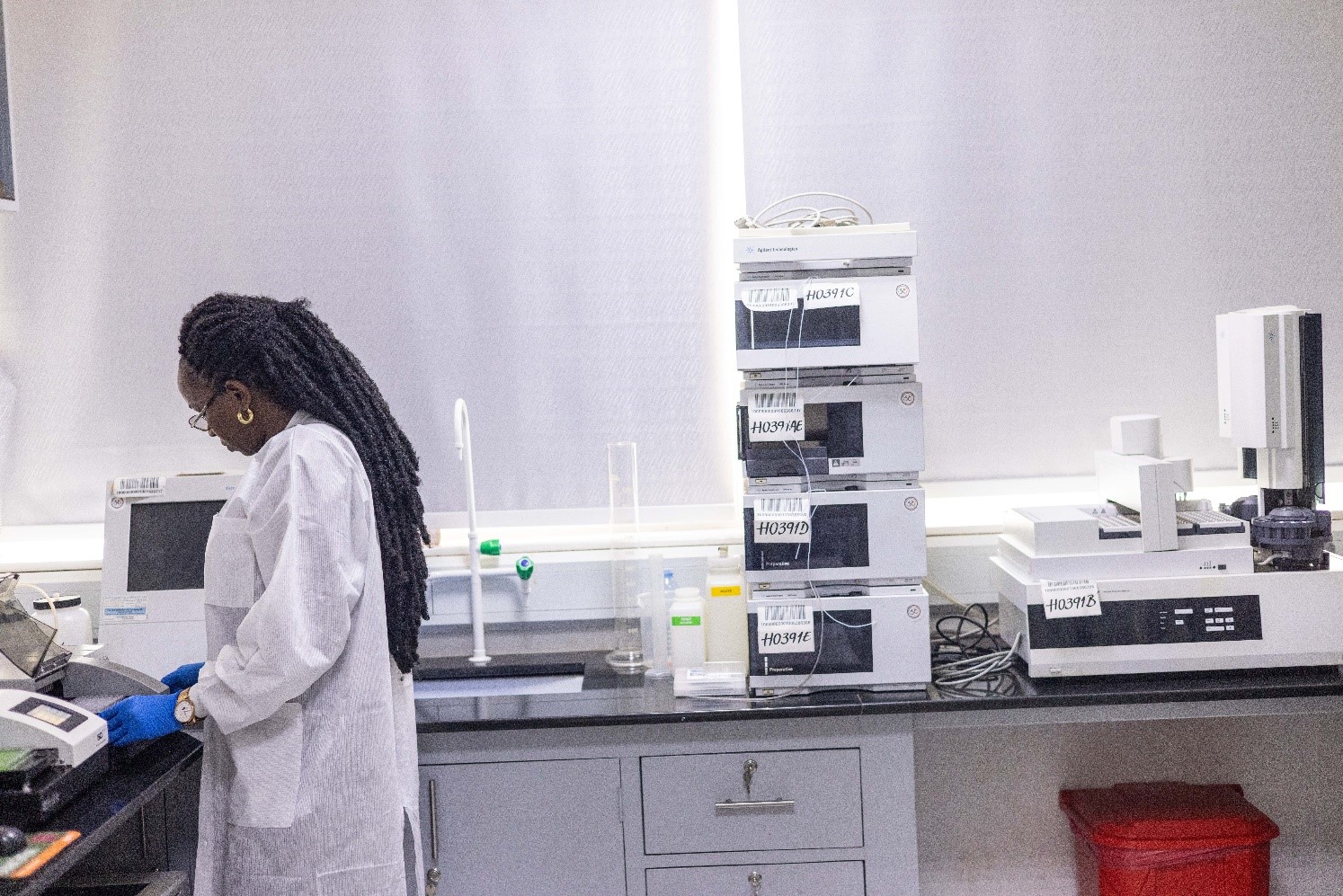
A glimpse inside the RTC Laboratory, the newly refurbished a cutting-edge research space equipped with advanced instrumentation.
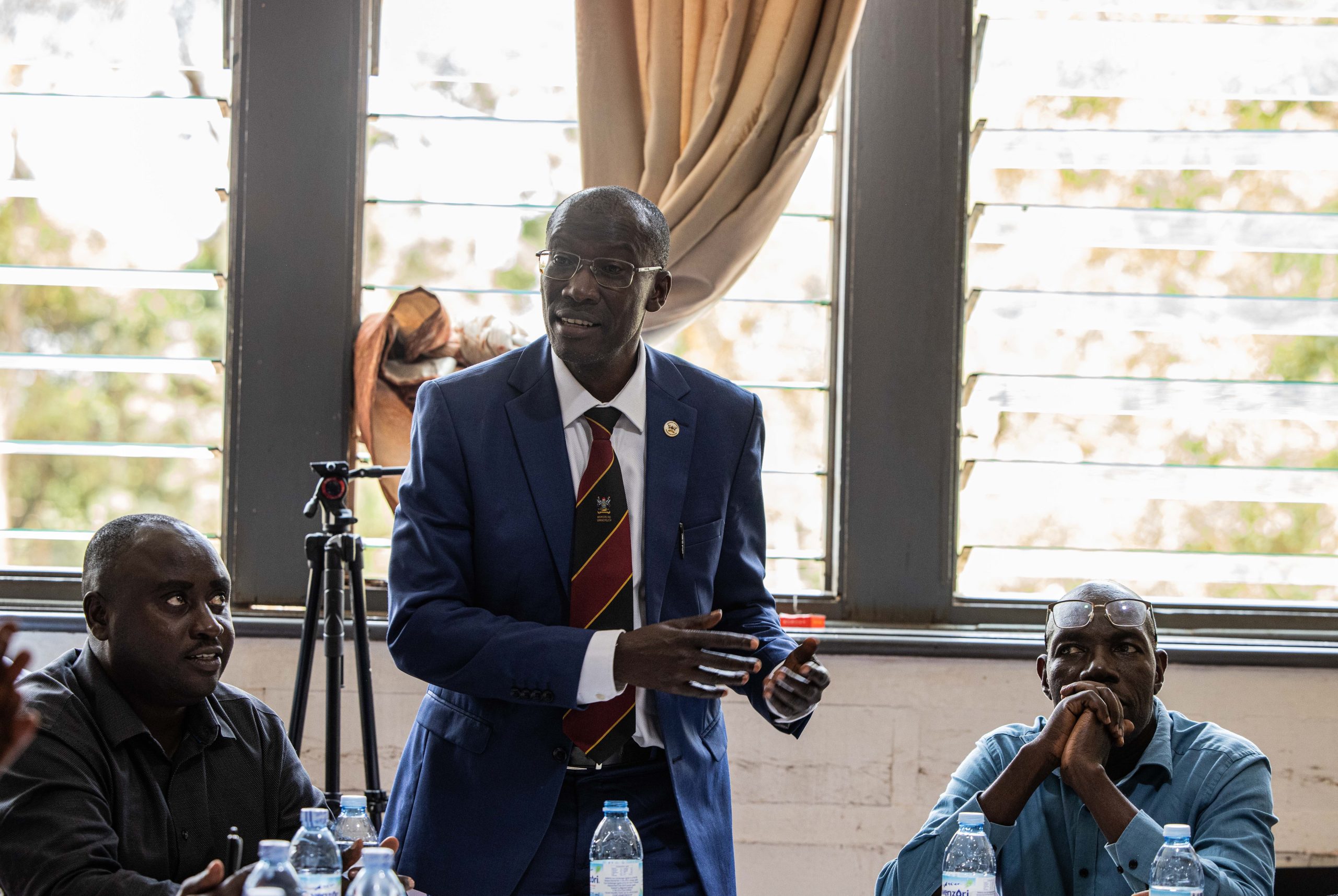
Prof. Frank Norbert Mwiine Applauds RTC Lab’s Transformation
The Principal of CoVAB, Prof. Frank Norbert Mwiine, praised the RTC Lab team led by Dr. Patrick Vudriko for the impressive progress in revitalizing the laboratory. “It’s more than infrastructure; it’s a movement,” he said, emphasizing the lab’s key role in connecting classroom theory with hands-on experience.
Students are now being immersed directly into laboratory environments, gaining exposure to cutting-edge research and diagnostic techniques. Prof. Mwiine underscored that fifth-year veterinary students are actively deployed into districts, engaging with farmers and applying their knowledge on the ground.
This hands-on approach guarantees that future veterinarians are not only academically prepared but also rooted in community involvement and practical problem solving. Through training and outreach initiatives, the labs function both as learning centers and catalysts for societal change.
We should take Makerere to the community and not the community coming to us. He extended appreciation to MAAIF for the proposed 69 veterinary labs to be constructed in the country. He said the college continues to train students who will be handy in the use of the labs.
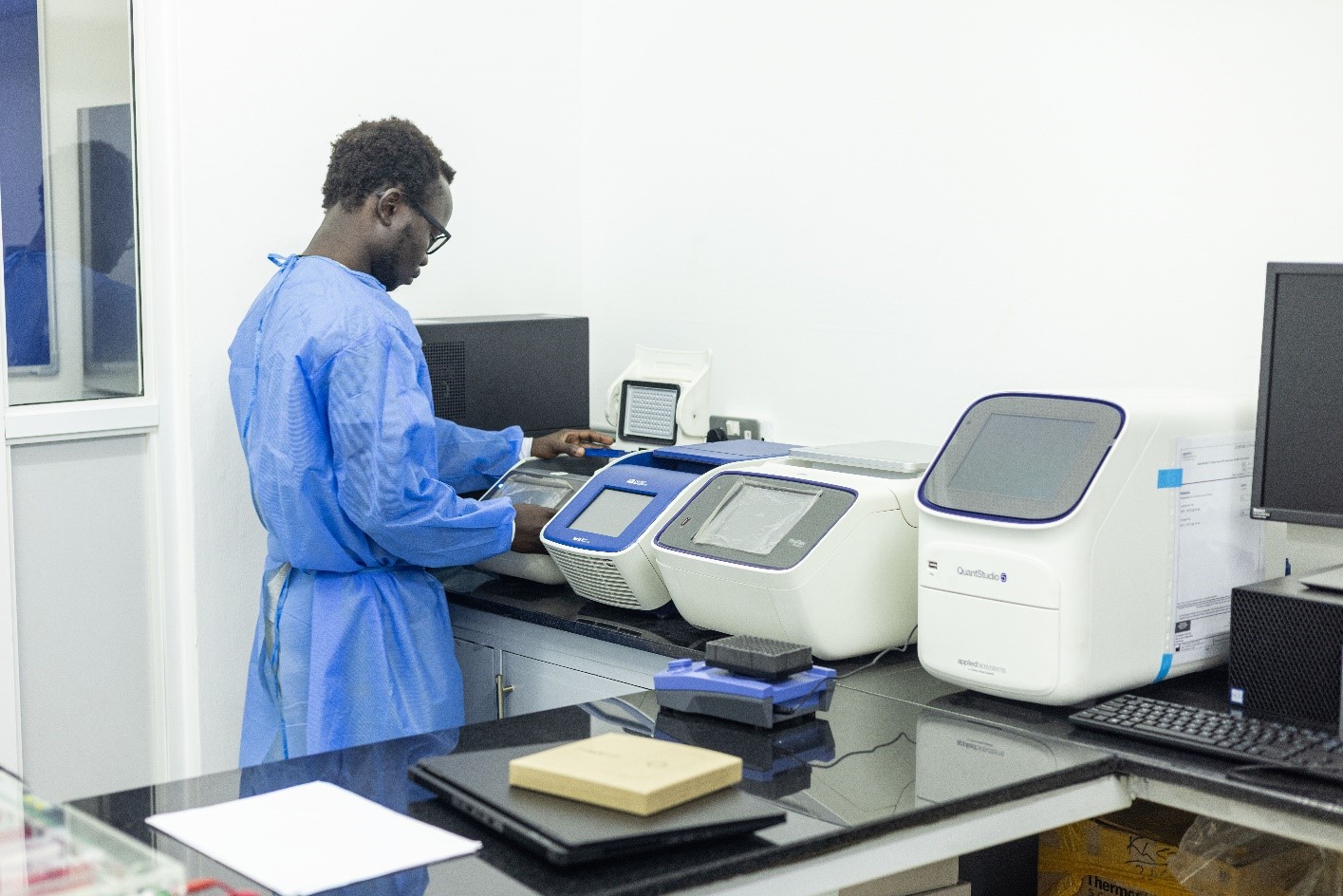
The RTC Labs are empowering students with real-world experience
Prof. Robert Tweyongyere, Dean of the School of Veterinary Medicine and Animal Resources (SVAR), underscored the strategic importance of the RTC Lab by tracing its historical focus on tick-related research. He emphasized that tick resistance goes far beyond science, touching on economics, policy, and sustainability. “When ticks become resistant to acaricides,” he noted, “it leads to increased chemical use, higher costs, and broader socioeconomic consequences.” Prof. Tweyongyere celebrated the lab’s evolution into a national hub, now supporting other laboratories and diagnostic units in communities across Uganda. He further applauded the veterinary fraternity for its commitment to advancing animal health and spearheading diagnostic services in underserved regions.
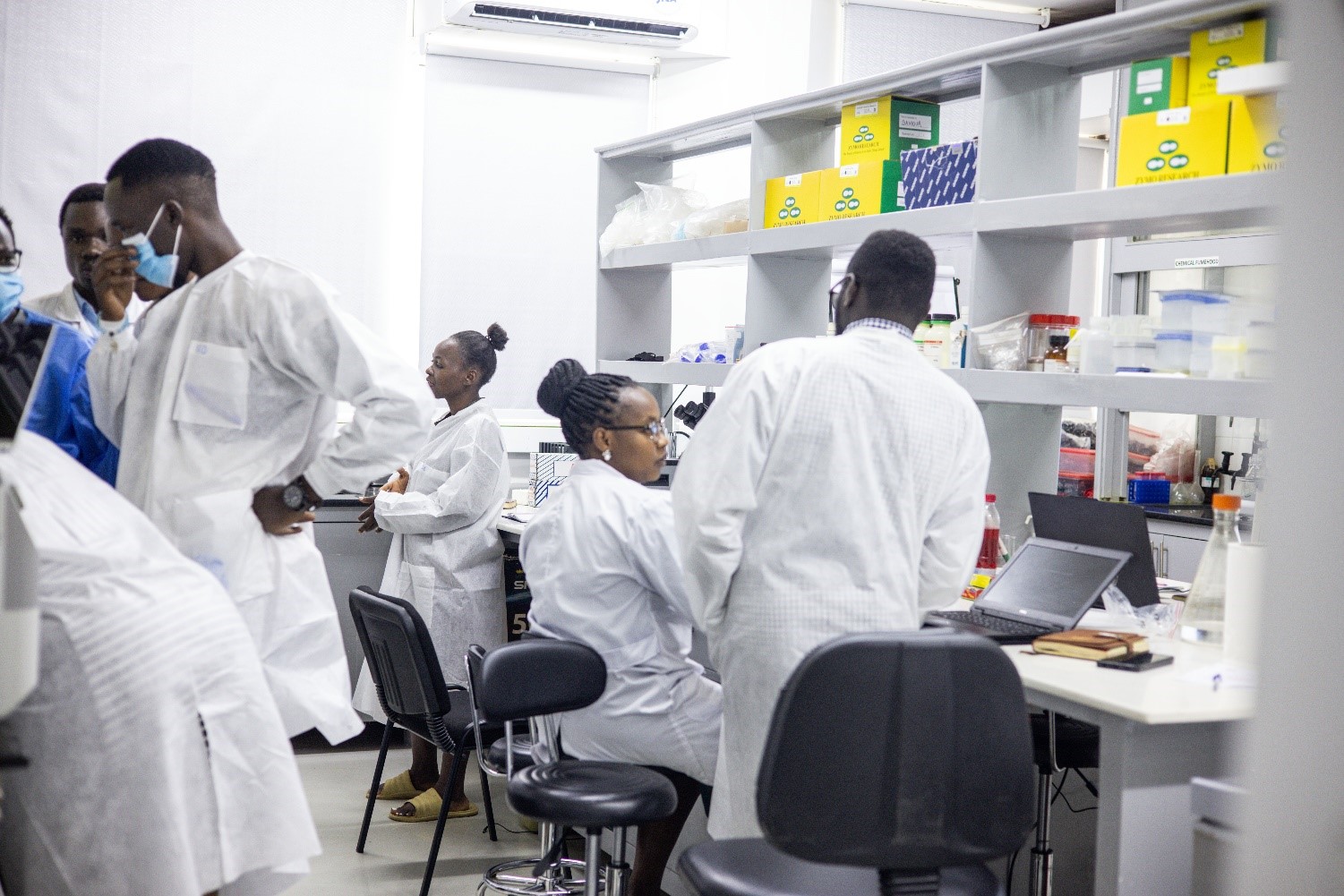
Story by Harriet Musinguzi.


